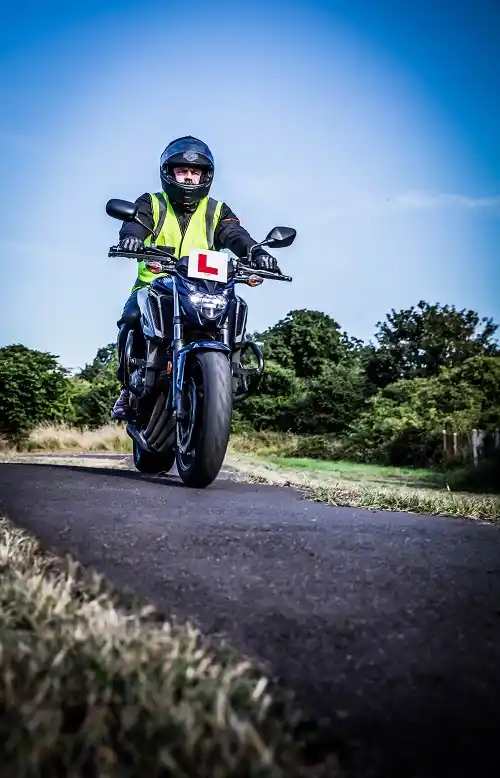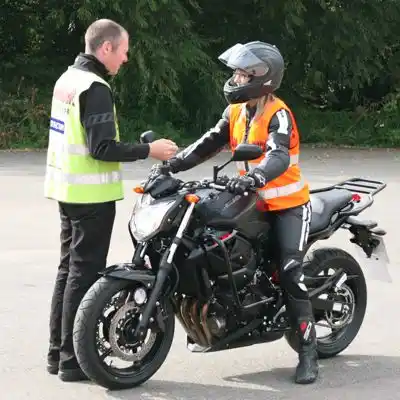Book CBT compulsory basic training in Cockermouth, Cumbria with any of the companies listed here
Click on any of the motorcycle training schools below to view more information and check availability.
Cumbria Motorcycle Training Workington
Moorclose Community Centre, Needham Drive, Workington, Cumbria, CA14 3SE
Approx. distance: 7.8 miles
Northern Route Kendal
25, Lake District Business Park, Kendal, Cumbria, LA9 6NH
Approx. distance: 33.7 miles
Real Rider Motorcycle Training Barrow in Furness
Vickerstown Foolball Club, Mill Lane, Barrow in Furness, LA14 3NN
Approx. distance: 38.4 miles
RIDE Motorcycle Training Carnforth
Unit 11F, Keer Park, Carnforth, Lancashire, LA5 9FG
Approx. distance: 44.1 miles
TNT Rider Newton Stewart
New Galloway Road, Newton Stewart, Dumfries and Galloway, DG8 6AW
Approx. distance: 48.8 miles
Raceways Rider Training Lancashire
48-60 Dock Street, Fleetwood, Lancashire, FY7 6AG
Approx. distance: 53.3 miles
Craigs Bike Training Hawick
Former bus station, Dovecote Street, Hawick, Scottish Borders, TD9 9QP
Approx. distance: 57.7 miles
Green Light Motorcycle Training Consett
30 Iveston Rd, Consett, County Durham, DH8 7HR
Approx. distance: 63.3 miles
Adventures on Wheels Ltd Selkirk
Unit 1A, Gibson Buildings, Central Riverside Industrial Estate, Dunsdale Road, Selkirk, Scottish Borders, TD7 5EB
Approx. distance: 65.2 miles
A and C motorcycle training LTD Willington
Willington, Crook, County Durham, DL15 0SP
Approx. distance: 67.6 miles

Locate CBT compulsory basic training in Cockermouth, Cumbria
Have you been searching for a company that can help you complete CBT compulsory basic training in Cockermouth or nearby in Maryport, Aspatria and Workington? BookCBTNow is the website you need. We can help you find your local motorbike training centres and help you get out on the road safely.Completing your 'Compulsory Basic Training' CBT test will allow you to ride any scooter, moped, electric motorbike, 50cc moped or 125cc motorbike of your choice. All you'll need to do is get a provisional UK license, suitable clothing and then book your CBT.
How can you help me find CBT training in Cockermouth, Cumbria
When you use Book CBT Now to find a company for your CBT test in Cockermouth you will only be provided with approved training bodies that meet all requirements set by the Driver and Vehicle Standards Agency. We will provide you with all the relevant details about the company along with additional information such as; whether bike hire, helmet hire and gloves and jacket hire are included, if there is parking on the premises, if there is an indoor classroom and if they have female instructors. If you would like to find out more about the company local to you then we will also provide you with their contact details.

Is a CBT certificate valid for 2 years?
Once you have completed your CBT training in Cockermouth your certificate will be valid for 2 years. If you carry on with your training and take a full motorcycle test then you will no longer need to renew your CBT. If you dont then you will need to retake your CBT every 2 years. This re-take is called an experienced CBT and some motorcycle training schools will list this as a separate course with different pricing. So if you are booking a CBT for the first time then make sure you book the right one.
Is Compulsory Basic Training (CBT) really a test?
Here at Book CBT Now we want you to fully understand what is required before you go on to undertake your CBT test in Cockermouth. Although the word 'test' is used, this is misleading; in actual fact, you will not be examined, but rather your ability evaluated by the instructor throughout the day.
Subsequently, if you are deemed to have the required competency level, you will be awarded with a pass certification, known as a DL196 certificate. However, this certification does not last indefinitely - its validity will expire after two years, after which you will be required to renew your CBT, unless you have taken and passed a full motorcycle A1, A2 or DAS test. For anyone that would like to read further regarding the specific details relating to CBT tests, we encourage you to take a look at our dedicated informative page.